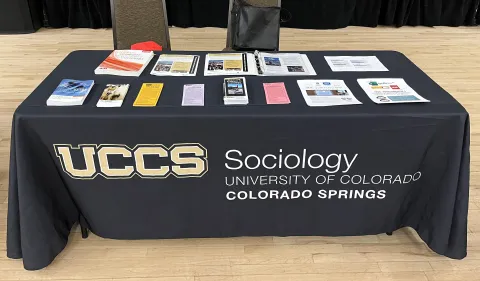
Graduate Student Resources
Core Student Learning Outcomes MA
We design our graduate program to help students develop crucial skills and achieve important outcomes. Upon completion of the MA program, students will:
- Demonstrate advanced critical thinking
- Demonstrate the ability to write in a clear, logical manner
- Demonstrate the ability to clearly express sociological knowledge in verbal communication
- Understand, analyze, and assess social experience and behavior, using the core theoretical perspectives in sociology
- Collect, analyze, and interpret sociological data effectively
- Understand key social phenomena of deviance, globalization, social change, multiculturalism, structural inequity and the intersection of race, gender, and other forms of stratification
- Gain in-depth knowledge of a substantive area of sociology

Graduate Course Descriptions
Click here for more information on our graduate courses.
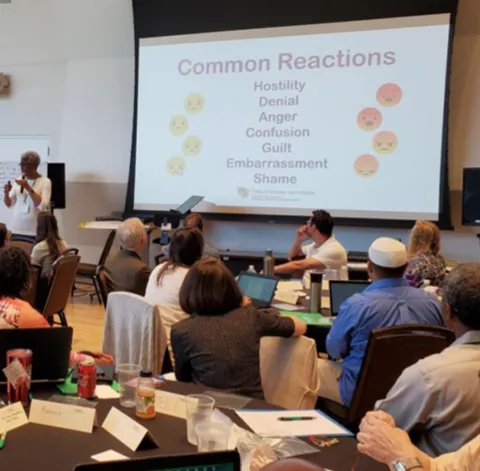
Graduate Degree Requirements
Click below for detailed graduate degree requirements.

Projected Graduate Course Offerings
See upcoming courses to help you plan your degree path.

Funding Opportunities
The UCCS Sociology Department provides a variety of financial support options for graduate students, including scholarships, assistantships, and research grants. Explore the opportunities available to help fund your education and advance your academic journey.

Sociological Association Conferences
We recommend that you consider attending sociological conferences and presenting research, both as a way to make connections in the field and as professional experience. Selected annual conferences include:
Sociological & Social Science Associations Annual Conferences (selected):
- American Sociological Association [ASA]
- 119th ASA Annual Meeting August 09-13, 2024, Montreal, Canada
- http://www.asanet.org/
- Society for the Study of Social Problems [SSSP]
- 74th Annual Meeting August 09-11, 2024, Montreal, Canada
- http://www.sssp1.org/
- World Social Science Association [WSSA] Formerly the Western Social Science Association
- 66th Annual WSSA Conference April 03-06, 2024, San Antonio, TX
- http://www.wssaconference.com/
- Southwestern Social Science Association (SSSA)
- New Orleans 2024 Annual Meeting April 18-20, 2024
- http://sssaonline.org/
- Association of Black Sociologists [ABS]
- 54th Annual Conference August 8-10, 2024, Montreal Canada
- http://associationofblacksociologists.org/
- Pacific Sociological Association [PSA]
- 2024 95th Annual Conference March 21-24, 2024, San Diego, CA
- http://pacificsoc.org
- Sociologists for Women in Society [SWS]
- 2024 SWS Winter Meeting Jan 25-28, 2024, Santa Ana Pueblo, New Mexico
- www.socwomen.org
- Midwestern Sociological Society [MSS]
- http://www.themss.org
- 2024 April 4-7, 2024, Des Moines, IA
- 2025 March 12-16 Chicago, IL
- 2026 March 26-29 St. Louis, MO
Interdisciplinary Conferences
- White Privilege Conference
- https:www.theprivilegeinstitute.com
- 2024 the 25th WPC April 3-6, 2024, Tulsa, Oklahoma
- Society for Disability Studies Conference [SDS]
- National Association for Ethnic Studies [NAES]
- http://ethnicstudies.org
- November 2-4, 2023, Howard University, Washington, DC
- National Women’s Studies Association [NWSA]
- Oct 26-29, 2023, Baltimore, Maryland
- Motherhood conference
- Society for the Scientific Study of Religion
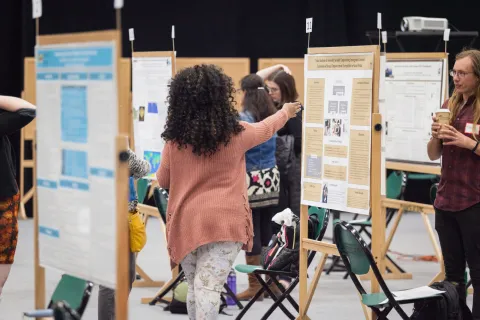
Memberships in Professional Associations and Sections
We recommend joining associations (in particular, the ASA) and sections within them. When you do this, you get on that section’s listserv and will receive information about publications, conferences, public events, job positions, and other useful professionalization information. You can find links to all sections here.
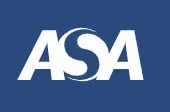
Comprehensive Exam Requirements
Beginning in fall 2020, all students accepted into the Sociology MA program but not in the Dual MPA/MA Sociology program and who choose not to complete a thesis will be required to take the comprehensive examination to complete the program. Students taking the comprehensive examination will follow these five steps:
STEP 1
On or before the first day of classes of the semester that a student plans to complete the degree, they must submit their intent to graduate along with their transcripts. They must also submit the four content areas that they plan to be tested on to the Graduate Director. The student should also carefully review the guide to taking the Sociology Comprehensive Exam.
STEP 2
At the first Department meeting of the semester, the department will select a committee of three graduate faculty members who will review the exams.
STEP 3
On Monday of week 5 of the semester, questions will be dispersed to the students. The student will write one 4 - 5 page response to one question from each of their four content areas
STEP 4
They will have three weeks to complete the essays (due Monday of Week 8). Essays must be submitted as a single Word document through Canvas and run through “Turnitin.”
STEP 5
By Monday of week 10 the committee will evaluate the essays and the Graduate Program Director will notify students that their exam was either approved or declined. If the work is approved, then the student will advance to graduation pending successful completion of all other requirements for the degree. If the committee declines to pass the work, the student will have an additional two weeks (due Monday week 12) to revise and resubmit the exam in Canvas based on feedback from the committee. In the case of serious and extraordinary circumstance beyond the student’s control, the student may petition the Graduate Director to retake the comprehensive examination in the following semester instead of revising their exam that semester. Retake means the student will begin at step 1 and receive new questions from their chosen content areas.
A. After the second attempt, the committee members may require a discussion of their essays with the student.
B. If the student does not pass on the second attempt, the faculty have grounds to expel the student from the program.
C. The committee members will remain anonymous throughout the examination unless the student has been invited to meet with the committee.

Thesis Requirements and Resources
As the first step in pursuing the Master's Thesis track, the student will select a Thesis Committee, which consists of a minimum of three graduate faculty members (an additional member may be included from outside the Department). This committee, with the approval of the UCCS Dean of the Graduate School, shall serve as the student's examination committee for the Master's Thesis Defense.
Under the direct supervision of the Thesis Chair, the student will develop a Master's Thesis Proposal (please see this information sheet on thesis expectations and how to create the proposal outline).
After the Proposal is approved by all members of the committee, the student will complete the research and writing of the thesis. See the relevant campus-wide thesis forms, deadlines, and so on.
Upon completion of the Master's Thesis and approval of each member of the committee a defense is scheduled. The goal of the defense is to provide for a thorough discussion of the thesis project, and exploration of issues and implications for continued research in the thesis topic.
For examples of past theses, see here for those completed prior to 2016 and here for those completed since 2016.
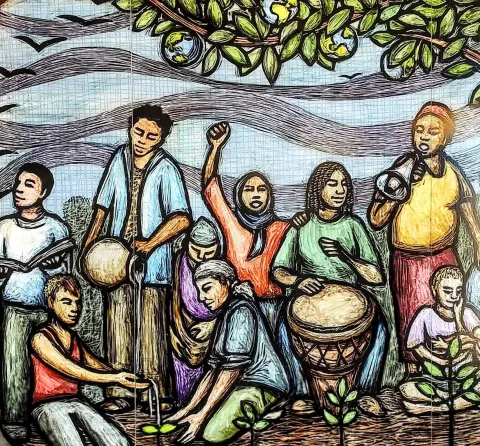
Portfolio Requirements
Note that the Portfolio option is only available to students who entered the Sociology MA program prior to Fall 2020. Requirements include a portfolio and an oral exam.
When you have completed the coursework requirements for the degree, please prepare a portfolio of your work. The portfolio must include:
- Academic résumé (example available upon request)
- Self-statement of 3-5 pages detailing what you have learned in the MA program and the connections you see between what you learned and your future professional or academic goals. In the statement, please briefly address your academic growth in the following areas:
- Critical thinking skills
- Ability to write in a clear and logical manner
- Expressing sociological knowledge in verbal communication
- Utilizing core theoretical perspectives in sociology to understand, analyze and assess social experiences
- Collecting, analyzing, and interpreting sociological data effectively
- Understanding key social phenomena of deviance, globalization, social change, multiculturalism, structural inequality, and the intersections of race, class, gender, and other forms of stratification
- In-depth knowledge of a substantive area of sociology
- Photocopy of original term papers (with grade and professor’s comments) from the required list of Sociology courses: 5160 – Theory, 5070 – Research Methods, and one of the following sociology courses: 5170, 5180, 5200, 5370, 5830, 5950, or 5830 – Advanced Methods
- For each of the above papers you need to write a 1-page addendum, discussing what you would change about the paper if you were to rewrite it today
- You are also encouraged to include the paper you most enjoyed writing or which reflects the area within sociology you found most interesting
- Please print your UCCS MA term by term class listing and include in the portfolio
A copy of your portfolio should be given to the departmental administrative assistant approximately 2 weeks before your scheduled Oral Exam.
Once your portfolio has been submitted and reviewed, you will be required to attend a non-thesis oral examination.
- You should plan to start with a well-thought-out, 10- to 15-minute presentation. This presentation is a reflection on your portfolio. For example: how do you see your studies in the Sociology graduate program at UCCS as potentially informing and relating to your next professional steps
- Presentations will be timed to ensure faculty can pose questions to the MA candidate
- Be prepared to address any theoretical, methodological, and substantive content evident in your portfolio (a list of example questions is available upon request)
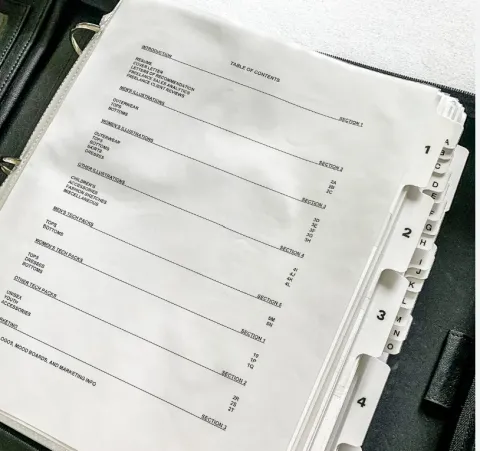
Provisional Admission
Students are notified of provisional status via their email acceptance letter sent by the graduate director. Students may be admitted provisionally for the following reasons:
- Undergraduate major was in a field other than sociology
- Undergraduate record shows strong potential, but the student struggled with core classes essential for successful completion of a graduate degree in Sociology at UCCS
- Cumulative undergraduate GPA is below 3.0
Students admitted provisionally in categories 1 and 2 must complete the provisional course(s) listed in their acceptance letter (SOC 5150 Modern Social Theory and/or SOC 5020 Proseminar in Social Statistics) prior to Graduate Theory (SOC 5160) and/or Research Methods (SOC 5070). Students admitted provisionally under category 3 must maintain an overall 3.0 GPA or higher for their first 9 units and take at least one core course each of their first two semesters, which can include the advanced methods courses; SOC 5050 does not fulfill this provision.
Students in categories 1 and 2 are required to pass provisional courses with a B+ or better and must take these courses in their first semester at UCCS. Provisional students cannot work as teaching/research assistants and are not permitted to take more than five credit hours per semester. Students can only take provisional course(s) once and only are permitted to withdraw from the class if there is a special dispensation (i.e., medical and/or family reasons). Failure to attempt to complete the provisional courses within the first semester will result in the student's dismissal from the graduate program. If extenuating circumstances exist that hampers the student's ability to complete a provisional course(s) in the first semester, students can secure a one-time exemption from the graduate director. Upon completion of the provisional requirements, students are no longer considered provisional students and can work as teaching/research assistants and enroll in more than five credit hours.
People that apply under category 3 should address their GPA in their cover letter and how they will maintain academic excellence in the UCCS Sociology Master’s program. Although not required, they may also choose to submit additional supporting documents such as a writing sample, GRE scores, or other evidence of potential success in graduate studies.
